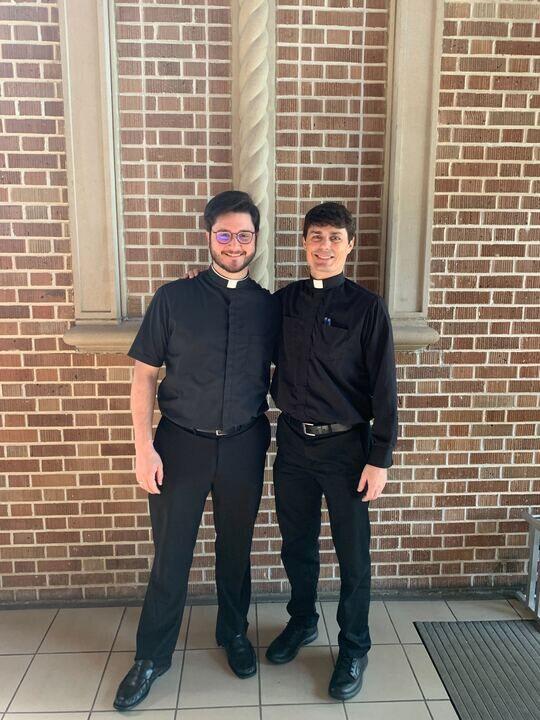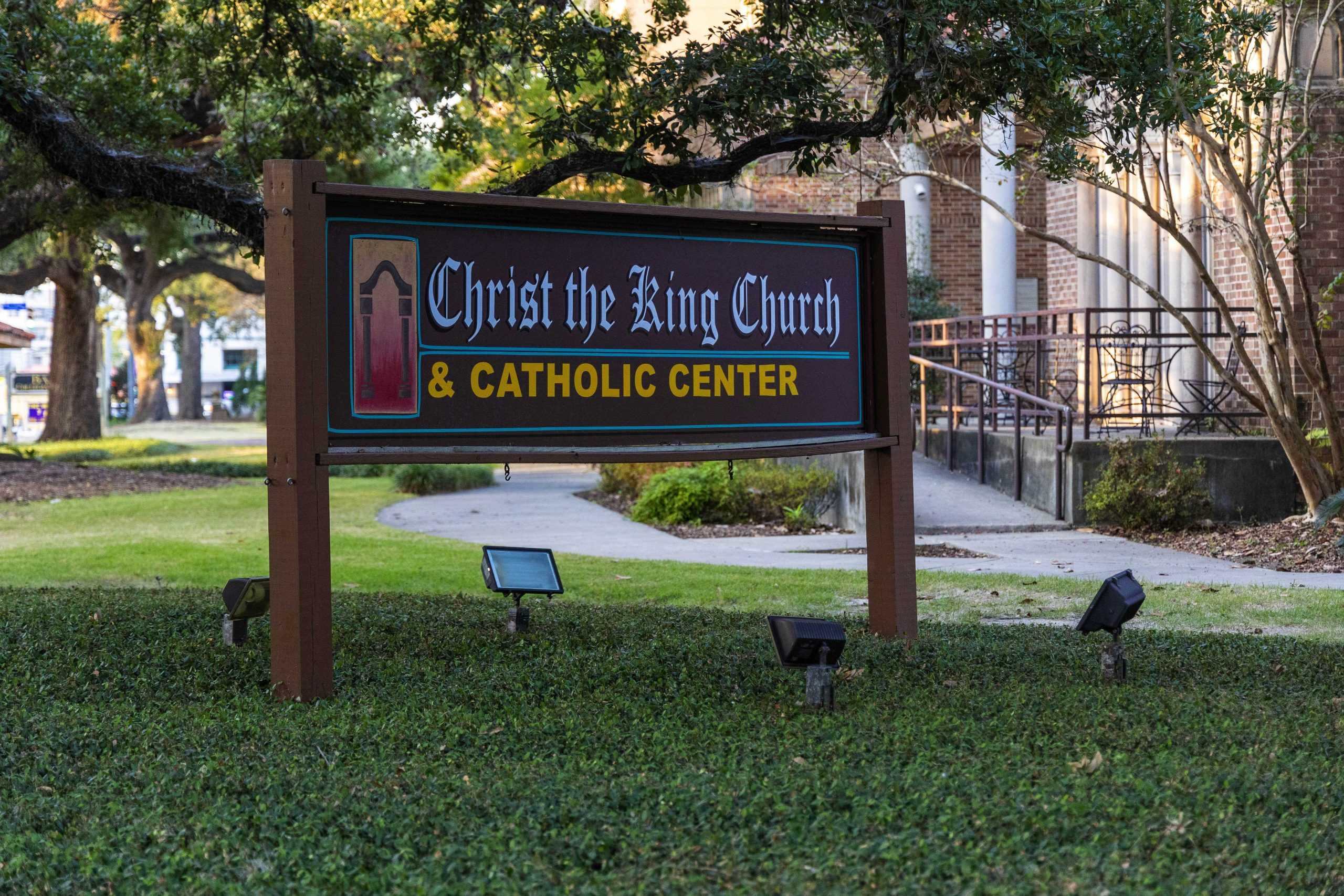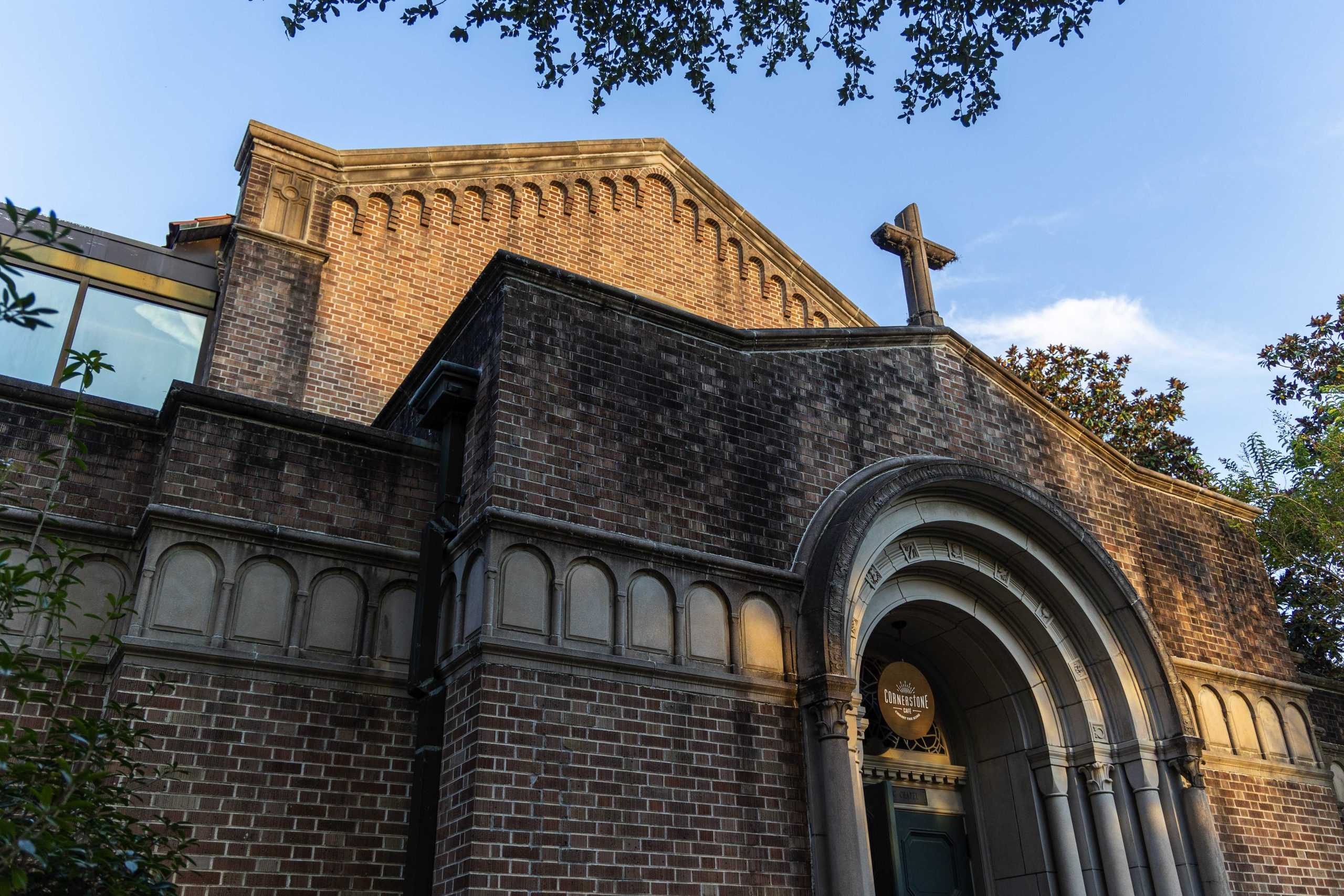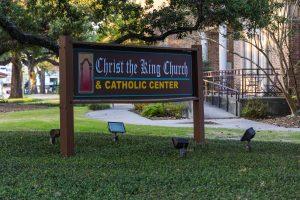Editor’s note: Benjamin Haines is a parishioner at Christ the King.
Perhaps no current political issue is as fraught as abortion. It seems to possess elements of the most essential and personal, of the most abstract to the most tangible – from the philosophical foundations of natural law and rights to the day-to-day realities of motherhood.
Indeed, regardless of where one stands on the political spectrum, the subject of abortion seems to bring out both the best and worst in everyone. While members of the political left express legitimate concern for a woman’s bodily autonomy, they can also demonstrate a callous disregard for others’ liberty of religion and conscience; similarly, the political right defends the right to life for every person no matter the age, while often ignoring the personhood and well-being of the woman who has had an abortion, who has faced what often seems to be an impossible choice.
And despite the widespread celebrations by anti-abortion groups in the immediate aftermath of the Supreme Court’s overturning of Roe v. Wade, the abortion question is hardly settled, as many Democrats have called for a bill legalizing abortion across the country.
As midterms rapidly approach, whether such a bill would or could pass is, for now, beside the point. The real questions both pro-life and pro-choice supporters and advocacy groups must now address are much more pressing: How can women, especially in the country’s poorest and most right-wing states, be supported? And what will happen to the children they must now carry to term?
For critics of the “anti-choice” position, the lack of a reasonable economic and social policy on these quandaries demonstrates the existence of an inherent hypocrisy imbedded in the term “pro-life”: there’s little support for life, they say, in a movement hyper-focused on abortion and nothing else – not welfare for babies, or on adoption, or on other traditionally pro-life policies, such as the abolition of the death penalty.
The pro-life movement, after all, wasn’t always synonymous with anti-abortion coalition only. It also wasn’t most prevalent among evangelicals in deep-red Southern states as it is today.
In fact, it was Northeast Catholics – not Southern Protestants – who started the pro-life movement.
When Roe v. Wade was initially decided in 1973, just 10% of Massachusetts legislators supported abortion. In Rhode Island, the legalization of abortion only became law in 1975, when a federal court overturned its anti-abortion law. Meanwhile, many Southern physicians had been performing abortions for years.
Now, of course, the inverse is true: the American South has some of the strongest anti-abortion laws, while New England has some of the strongest pro-choice ones.
The historian Daniel K. Williams argues that this geographic shift in the pro-life movement began in the U.S. when evangelicals got involved in the late 1970s and early ‘80s – that is, once they were convinced that the pro-life movement was not a “sectarian” Catholic campaign and began to see the legislation of abortion as a part of a wider liberal social revolution.
As a result, the pro-life movement was swept up in Republican campaigns aimed at gaining control of a variety of policies, especially the courts, by blending “Southern populism,” “economic libertarianism,” and “Bible belt moral regulation,” thus leaving Northern Catholics behind, who were naturally drawn to their church’s more public-facing social teaching.
Consequently, as Protestants evangelicals led the pro-life movement toward a strictly anti-abortion position — shaking its affiliation with an anti-poverty, maternal health insurance and government-paid daycare agenda — many Catholics left the cause.
Similarly, in the present day, this divide between Protestants and Catholics in their approaches to and definitions of the meaning of a pro-life disposition remains largely the same – both across the country and at LSU.
Take, for example, the strategic differences between the two largest Christian congregations on campus: The Chapel, a non-denominational Protestant church, and Christ the King, the school’s local Catholic parish.
Courtney Hamilton, The Chapel’s communications director, said the church takes an “individual,” rather than programmatic, approach.
Any person, man or woman, seeking help for anything is funneled through their Care Ministry, which provides financial, physical and healthcare resources and services. The intent of the ministry is to “listen to the story about your situation…to fully understand” a person’s needs to help give him or her access to “practical resources” and “identify potential solutions,” according to its website.
In other words, if a pregnant woman came to The Chapel seeking help, she would be directed to any resource of which church staff knew.
Hamilton said that The Chapel cares “about the person. It’s not a black or white thing…we care about a person who feels that they are in a tough season of life.”
The church has other ministries aimed at family life, such as a support team for couples involved in foster parenting.
In all, though, The Chapel has a much less comprehensive and direct pro-life programs than Christ the King does, whose most significant link to pro-life causes is the Women’s New Life Clinic, which is staffed with medical professionals who provide free ultrasounds, free counseling – for pregnant women and those who’ve had an abortion – and resources for newborns, such as diapers and baby formula.
Other ministries supported by Christ the King and the Diocese of Baton Rouge include a Walking with Moms in Need program, which helps women during and after pregnancy through financial support and job hunting.
The Catholic Life Center, located on South Acadian Thruway, works with several charities focused on family and pregnancy: the Maternity Adoption Office of Catholic Charities helps “women who chose to parent and those who chose to make an adoption plan,” as well as a place for mothers to stay; A Difficult Choice, a Louisiana pregnancy help resource; the Pregnancy Problem Center; the Women’s Help Center; and Standing with You, a “National directory of pregnancy and parenting resources.”
Comparatively, LSU itself offers little in the way of pro-life information – a curiosity considering the deep-red status of Louisiana, in addition to the recent overturning of Roe.
In fact, according to Rebecca Breaux, a nurse practitioner on staff at the Student Health Center, “there haven’t been many changes” since the Supreme Court’s June decision, “except that more students have become concerned about their future birth control options.”
The primary way that the SHC offers help for students is in the way of birth control. Breaux said that the school primarily offers educational information and an assortment of contraceptives, including “the pill, patch, vaginal contraception ring, Depo Provera injections, the arm implant Nexplanon, and the hormonal and non-hormonal IUDs.” They also offer free condoms and prescriptions for Plan B and Ella, which are used for emergency contraception.
There’s also a case manager on staff who is “always up to date on what states are offering abortions” and who “meets with students who are still looking at abortion as an option and helps them figure out where to go and what financial help may be available.”
Breaux also meets with patients to confirm a pregnancy and conduct an ultrasound, if desired.
The only pro-life information given to pregnant women comes in the form flyers of a handful of Catholic crisis pregnancy charities, such as the Women’s New Life Clinic.
The Women’s Center, likewise, has little to offer in way of pro-life information.
When asked about this issue, Daniela Chu-Rodriguez, the Center’s assistant director, emphasized simply that the “Women’s Center’s goal is to promote the advancement of women’s issues and gender equality through its services, advocacy efforts, and educational programs.” Nothing about pro-life education or options was mentioned.
According to Chu-Rodriguez, the Center focuses on three main areas of support: “programs and events, information and referrals, and providing meeting spaces and reservations for student organizations, other departments, and community partners.”
Any person enquiring about an abortion is referred to the National Abortion Federation Website, Chu-Rodriguez said.
The fact that campus services don’t, in any substantive way, provide crisis pregnancy options is likely frustrating to those of the pro-life persuasion, especially since Roe has been overturned.
For Father Mathew Dunn, one of the priests at Christ the King, this lack of pro-life information highlights an important reality: that the work of the pro-life movement is far from over. There’s much more to be done to provide services to expectant mothers and families.
This is the reason Christ the King and the Baton Rouge Diocese have connections to so many crisis pregnancy and single-mother help organizations. They know that, with Louisiana women no longer having the option to abort, there will be a significant spike in their need for help and guidance along the way – during and after pregnancy.
For Dunn, for Catholics and for most members of the pro-life position, the copious amount of work is worth it, and it has nothing to do with politics, with controlling women’s bodies, impressing conservative values on others or owning the libs.
At its core, to be pro-life is to believe that every person, born or unborn, regardless of social, wealth or racial status, is deserving of a right to life, beginning at conception and ending in natural death. This preserves the most essential of gifts, not just for the fetus kept from an abortion, but also for the rest of the world — to end an unborn child’s life is to end the potential good that that person could bring to the world, were they only given the chance.
And though Dunn believes the pro-life coalition’s goals are right and just, he also recognizes that the movement itself isn’t perfect. Some pro-lifers, he admits, have a bad reputation for demonizing the mother of an aborted infant – even some members of the Catholic clergy are guilty of this. Dunn hopes to see mothers and their unborn children treated equally, not as an “either/or” binary, but as “both/and,” equally important in the eyes of God and man.
A pro-life movement framed in this way is much different than many across the political spectrum may think: It’s aimed at the preservation of all life, young and old; it’s for all people, born or unborn; it protects the innocent and the guilty, from the womb to death row.
It would also answer one of the largest and fairest criticisms of those on the pro-choice side of the debate. Rather than be simply concerned with the elimination of abortion as an option, this renewed pro-life movement would seek to care and provide for mothers and their children – as the original pro-life movement once did.
Doing so, however, would require a stronger union between conservative evangelicals and Catholics, as well as a radical change in attitudes toward expanded government healthcare programs and the like – perhaps something that’s too much to wish for.
For pro-life members of the LSU community, however, things can start at a smaller level, such as campaigning the university to include more pro-life information and resources at the SHC or continuing to support local crisis pregnancy centers.
But most importantly, pro-life supporters should work from a place of empathy and understanding — not an allegiance to party or ideology — so that they may embody the values they claim to hold so dearly.
Benjamin Haines is a 24-year-old history graduate student from Shreveport.









